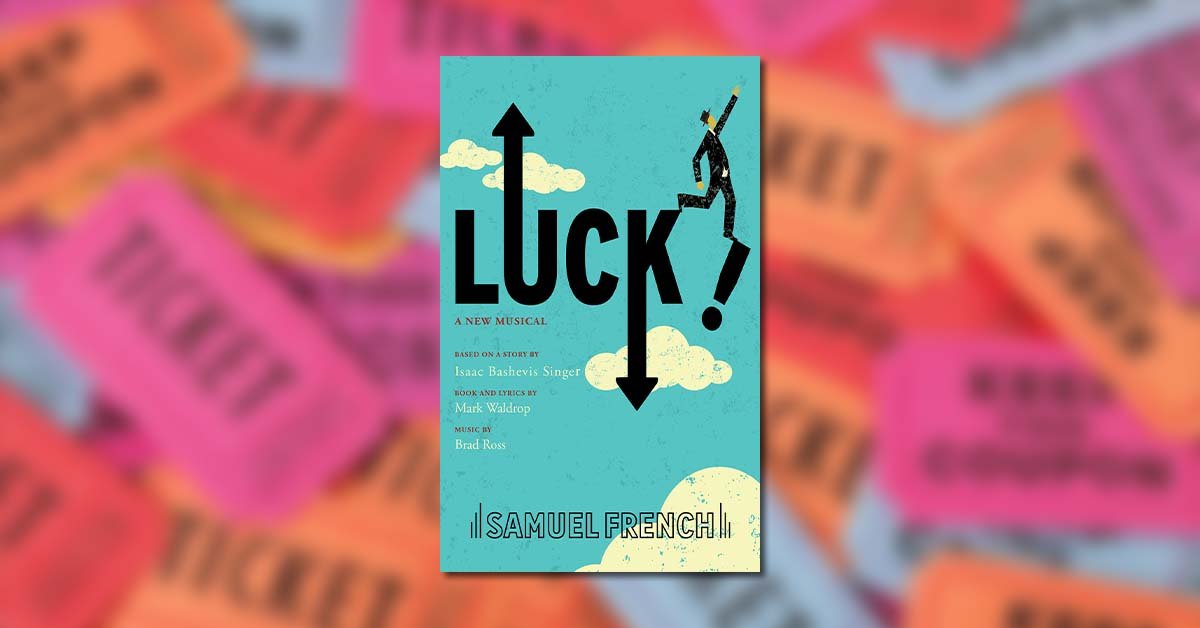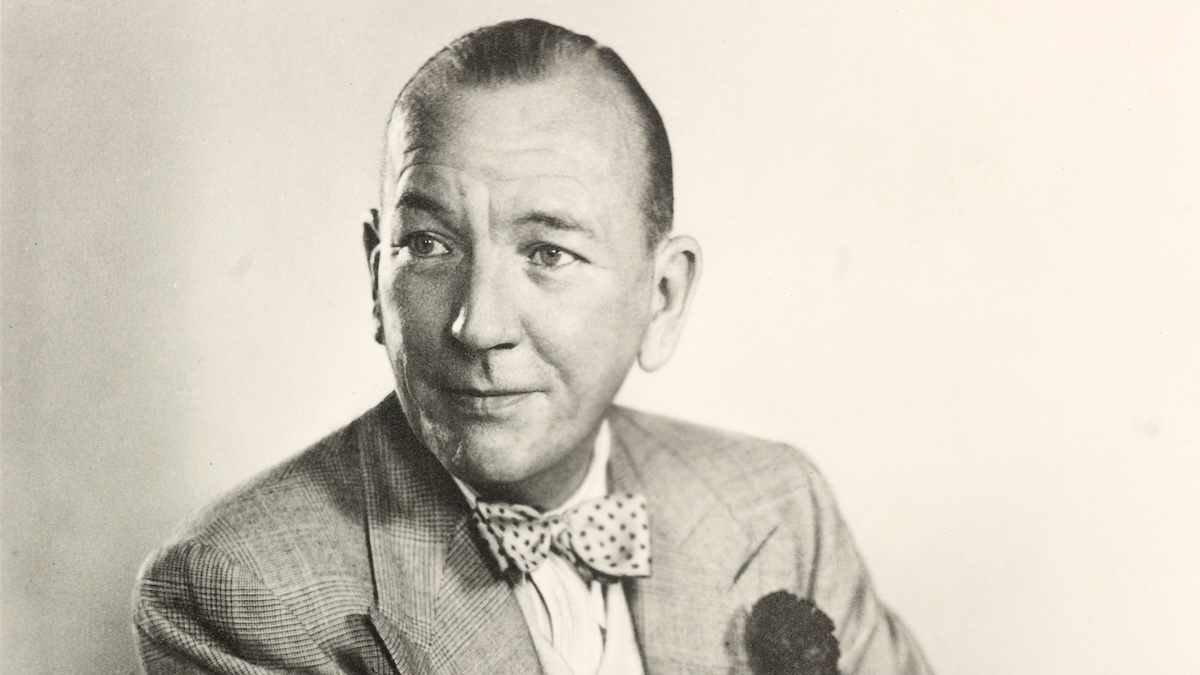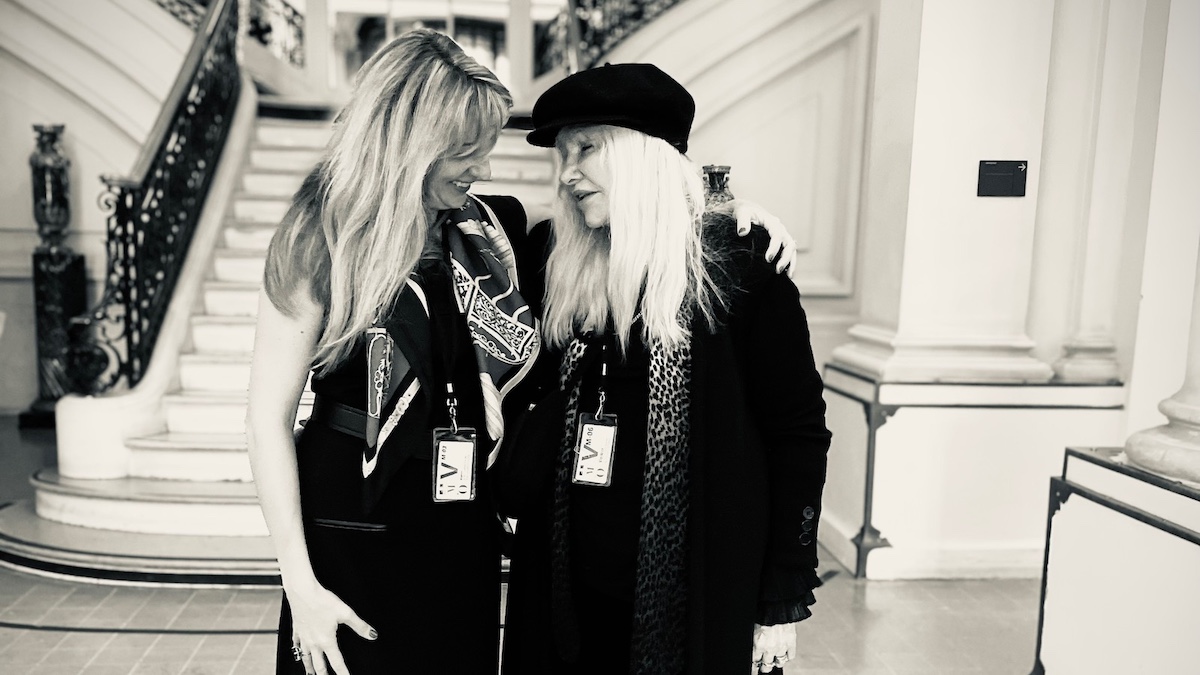
Nobel Prize-winning writer Isaac Bashevis Singer wrote at least 18 novels for adults, 14 children’s books and dozens of beloved short stories, including “Gimpel the Fool” and “Yentl, the Yeshiva Boy.” His short story “Mazel and Shlimazel, or the Milk of a Lioness” inspired librettist/lyricist Mark Waldrop and composer Brad Ross to create LUCK! A Musical, a hilarious, fast-paced stage musical filled with charm and wit.
Rehearsal and performance tracks for LUCK! will soon be available for licensing, making the musical even easier to stage on a budget. We recently had the good fortune to sit down with the musical’s creators to discuss the show’s inspiration, genesis and legacy.
…
This show is a delight! For those who don’t know it, can you tell us a little about LUCK! A Musical?
MW: It’s a fractured folk tale – a kind of Once Upon a Mattress meets Fiddler on the Roof. The story concerns a bet over who is the more powerful between Mazel and Shlimazel, the spirits of Good Luck and Bad Luck. Shlimazel says that he will give Mazel a full year to lavish good fortune on a mutually agreed upon subject. Then, at the end of a year, Shlimazel will undo everything Mazel has done in one second. A hapless village boy named Tam becomes the subject of the bet, and under Mazel’s influence he is swept into the royal palace, falls in love with the Princess, and accomplishes a series of near-impossible quests to win her hand. Just as Tam’s success and happiness seem assured, Mazel’s year runs out and Shlimazel takes over. In one second Tam loses everything! Since the terms of the bet prevent Mazel from intervening, it’s now up to Tam (with the help of the clever Princess) to earn their own happy ending.
What first drew you to this Isaac Bashevis Singer story as a vehicle for musical adaptation?
MW: I had never met Brad before, but he approached me one day in the lobby of the theater where my show Howard Crabtree’s When Pigs Fly was playing and said he had found a property that he thought would make a great musical and asked me to read it. He had the children’s book in a manila envelope and thrust it upon me. I took it home and read it and agreed that it wanted to sing.
BR: I always loved the world of Isaac Bashevis Singer; his imagination, soul, and heart. When I discovered this story, it spoke to me immediately, mainly because I found its theme, “You can make your own luck,” so compelling. Also, I knew I could write fabulous music for these characters.
How would you describe the musical style of the show?
MW: Eclectic, eccentric, Broadway style. It was just the type of music that seemed to flow out of us as the piece took shape.
BR: As the composer, I’m always looking to write great melodies and this wonderful story made it easy for me. The musical choices came naturally from the folk-tale world of the story and the enjoyable collaboration with Mark.
The story feels both traditional and refreshingly current. How much of the musical’s book is from Isaac Bashevis Singer and how much is your own invention?
MW: We expanded the story a lot, since Singer’s original is essentially a picture book that can be read to a child at bedtime. One change was adding the character of Grillida. The Princess needed a foil, someone to whom she could express her thoughts and feelings. And since Kamstan, the villain of the piece, doesn’t believe in luck, it seemed logical to have Grillida totally put her faith in luck, which opened the door to some good comedy. The biggest liberty I took with the original was making Mazel a female character. It just seemed to balance the show better, to allow for a stronger female presence, and widen the show’s emotional scope by letting Mazel develop maternal feelings for Tam. And since “Lady Luck” is a familiar expression, no one questioned the switch of sexes.
It’s a shame Singer couldn’t see what a wonderful musical you’ve made from his story.
BR: One of my personal highlights with LUCK! was performing some of the songs for Singer’s son and grandchildren. They loved it! This made me feel great, as if Isaac Bashevis Singer himself approved!
How did your partnership work as you were creating the show?
MW: In my previous collaborations, especially with Dick Gallagher, I almost always wrote the lyrics first. But with Luck! I started working with Brad by discussing overall song structure and the song titles and letting him have the first crack at it – I particularly remember working this way on the opening number, which is the title song. I found to my surprise that I liked having the music first, and I’ve worked more and more that way ever since.
BR: Once Mark and I discussed the song moments, it was fun to compose the music first.
Has LUCK! A Musical changed at all since its first workshop production?
MW: The show always played well in front of an audience, but along the way we cut some numbers and swapped out some others. We did a workshop with Stephen Schwartz, and he was very helpful in helping us trim away some things that weren’t necessary. There was a duet for Mazel and Shlimazel about how, despite their differences, they were tied together for all eternity called “Opposites Attract.” It was a clever song, but it didn’t move the story along, so it was dropped. In the early versions Grillida, the Princess’ nurse, didn’t have a song – but she was a great comic character, and the audience wanted more of her. Her solo, “Waste Not, Want Not,” was the last thing we added to the score.
The show has a wonderful “seat of our pants” feel to it. Though some theatre companies may choose to stage an elaborate production, LUCK! can certainly be performed on a shoestring. Was that the intention, or were you simply writing within the constraints of your first production’s budget and resources?
MW: It was the intention. The action of the story is so wide-ranging, and the story elements are so absurd and grotesque – a lion running around, flying serpents, Shlimazel’s hellish drinking buddies – they can’t be put on stage without some major suspension of disbelief. Meeting those creative challenges is what theater magic is all about. And sometimes, the lower the budget, the more effective the magic is – because it requires the audience to engage its imagination.
The concepts of Mazel and Shlimazel come from Jewish folklore, but the story and themes of LUCK! A Musi
cal are universal. How do you feel the show appeals to audiences of all backgrounds?
MW: Good luck and bad luck are universal aspects of life, so it’s easy for anyone to immediately grasp who Mazel and Shlimazel are and what they represent. Beyond the bet between them that sets the plot in motion, the story also concerns classic elements like love, treachery, heroic quests, transformation, and the protagonist’s discovery that the ultimate power was always within himself.
What do you hope audiences and theatre makers take away from seeing or presenting the show?
MW: I hope audiences feel the story recombines many classic elements in ways that feel fresh, funny and touching. And I hope that the way in which the story is told provides a playful and memorable theatrical experience. As far as theater makers go, I hope LUCK! inspires them to lean into their own heart, humor and ingenuity in ways that mirror the spirit behind the script and score.
…
To license a production of LUCK! A Musical, visit ConcordTheatricals.com.

Noël Coward’s Travels

Kate Chopin in New Orleans: Mother-Daughter Author Duo Collaborate on Historical Book

